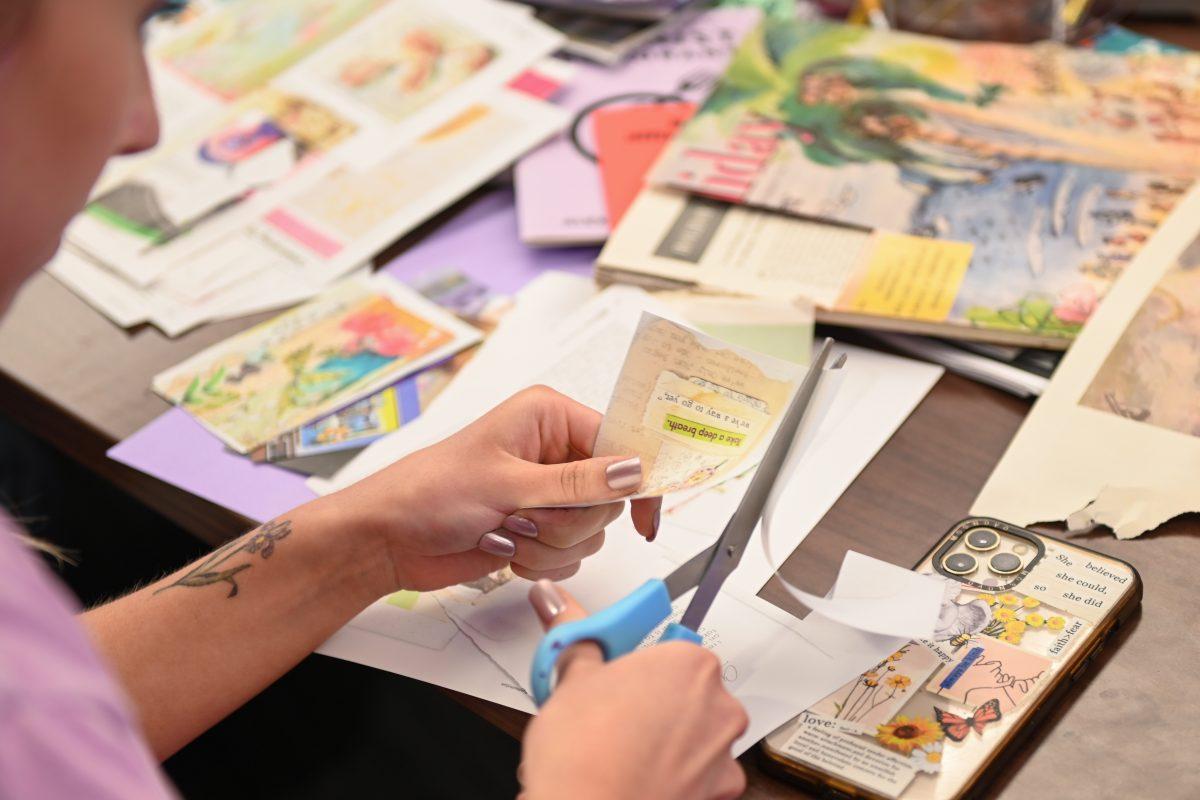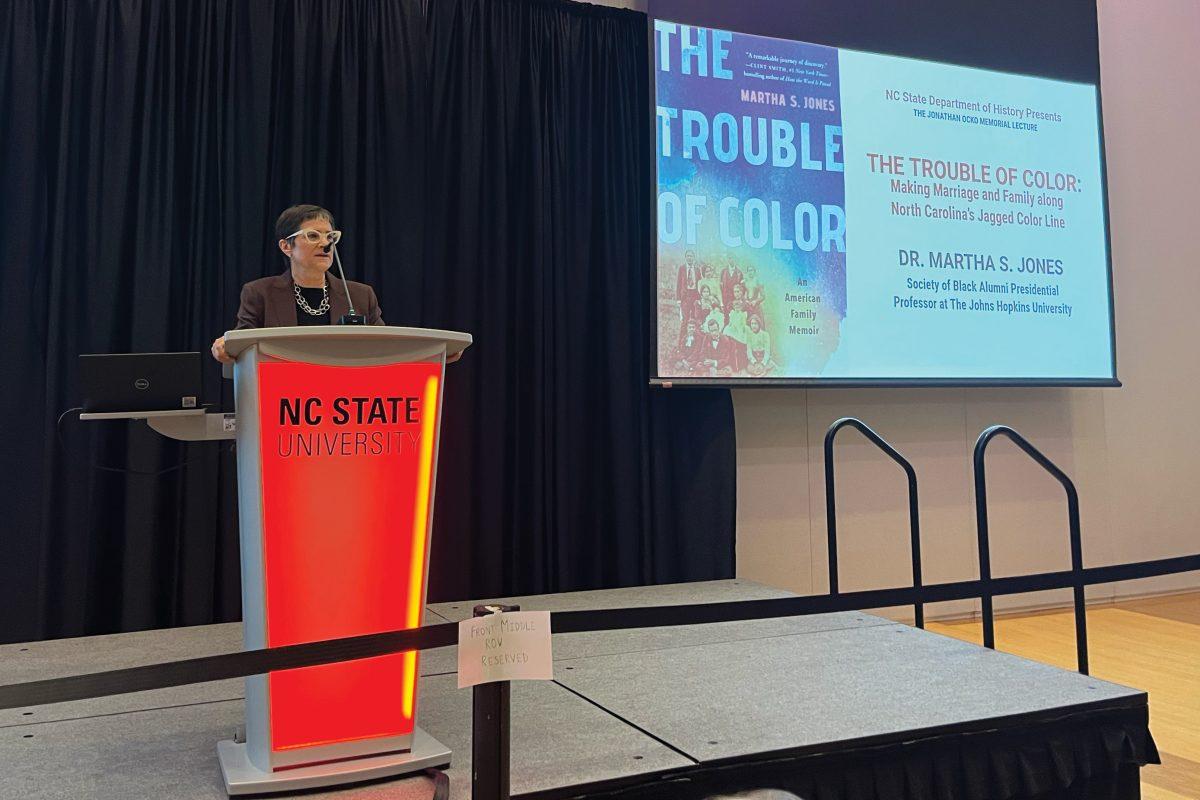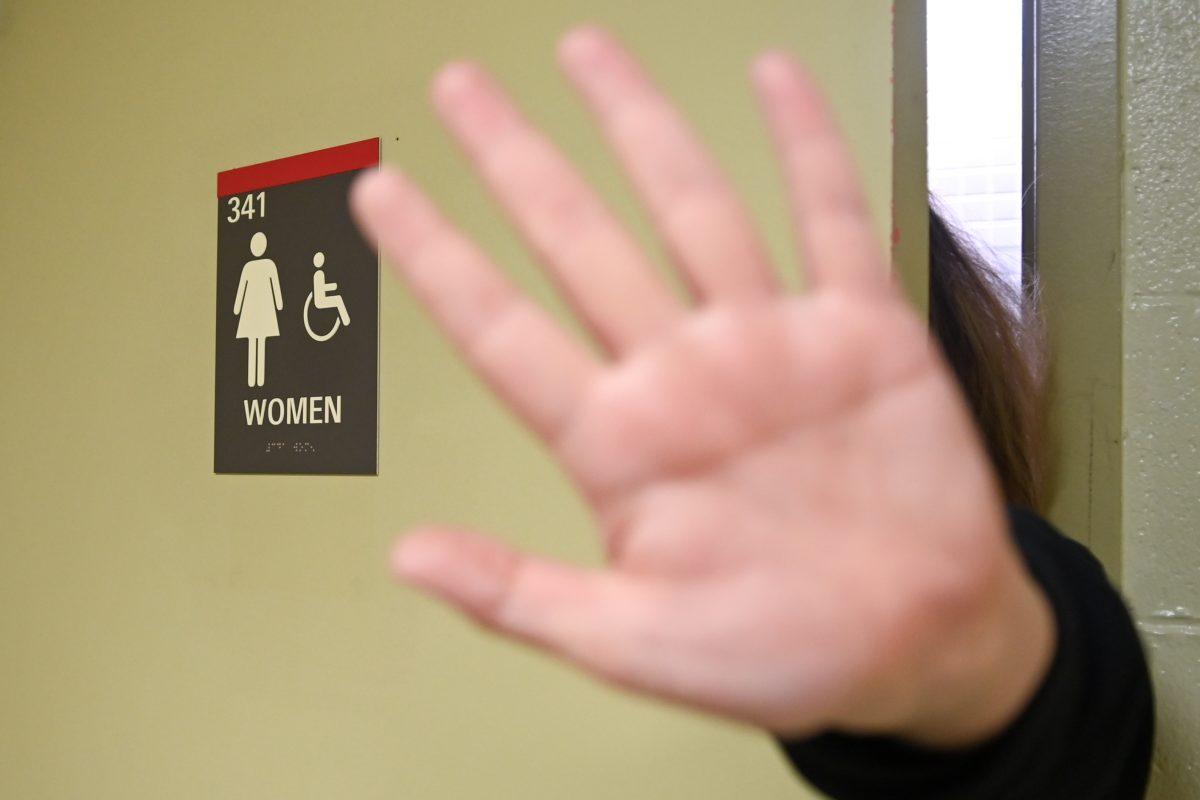In celebration of Women’s HERstory month, The Movement Peer Educators held a scrapbook and zine-making workshop Tuesday, delving into their roles in feminist movements and history.
The Movement, a group of students trained in interpersonal violence prevention and education who advocate for a safer and more equitable campus community, began by explaining that zines are self-made, self-published collections of ideas and themes often created by taking scraps of magazines or other paper materials. Event leaders went over how zines have been used throughout history to push radical ideas for topics like feminism and showed examples like the 1990s publication “Riot Grrrl.”
Valeria Gonzalez Perez, a fourth-year studying zoology and creative director of education for The Movement, highlighted the importance of zines throughout history as a means of self-expression.
“Zines overall have been a very powerful tool to bypass traditional publishing gatekeepers, creating accessibility in spaces for self-expression and collective healing,” Gonzalez Perez said. “So zines were kind of seen as a way for people to take that power back onto themselves and make it widespread amongst their communities.”
Guests at the event were able to make their own zines out of paper and magazine materials, drawing on themes of feminist empowerment in those around them or in themselves.
Jenni Wilson, an NC State alum and university program associate at NC State’s graduate school, said she attended the event to learn more about creating zines and how they work as a form of expression.
“I haven’t engaged with zines on my own time in any other time before this, which is kind of why I wanted to come, just because I have vaguely known that they existed,” Wilson said. “I know that they exist in activist spaces, but I’ve never really [drawn] one or done any, especially any engaging on my own and making one.”
Wilson said she recently found out about junk journaling, the art of making a personalized journal with repurposed materials like old books, magazines or scraps. She related that to creating zines and scrapbooks while incorporating the themes of women’s empowerment that were prevalent throughout the event.
“I have all this stuff that I acquired that is sentimental,” Wilson said. “ … So I like that the junk journaling has given me a way to use those items in a way that, again, like they’re not going into a landfill, they’re not going into the trash, but I can still flip through this book later and see all of my things.”
Wilson also added how practices like junk journaling or zine and scrapbook making are sustainable forms of art, encouraging her to create more.
The event highlighted how although the two can be made with similar materials, zines are often defined by the specific themes and ideas the author wants to spread.
Gonzalez Perez said events through the Women’s Center create a space for students to feel supported and can promote advocacy for The Movement.
“I would be remiss if I didn’t highlight the importance that it has as essentially one of the main pillars and spaces that survivors of domestic violence and interpersonal violence, and also allies to women and to survivors and just to people in general,” Gonzalez Perez said. “It has been a beacon of support and encouragement.”
Throughout Gonzalez Perez’s time within The Movement, she said her participation and leadership have granted her a unique perspective.
“Through The Movement, I found a sense of purpose, like beyond my passion and love for academia and for science,” Gonzalez Perez said.
“I already had a passion for community building and for social justice and equity, but I truly didn’t really feel like I was able to really tap into that potential until they developed that leadership skill within me. I feel like it has been here with me and for me and because of me, all at the same time. So I’m deeply thankful to it.”
More information on The Movement Peer Educators can be found here.












